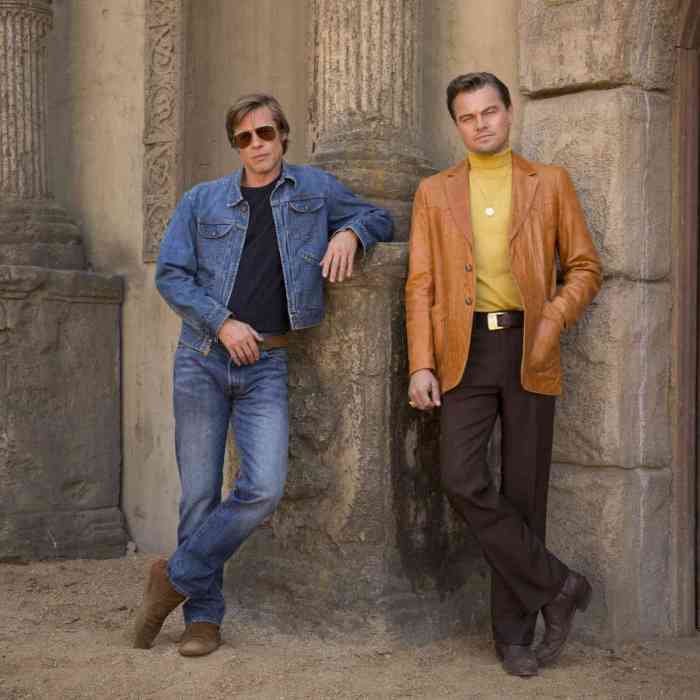BY STEVE ERICKSON | Anomalisa,” the title of Charlie Kaufman and Duke Johnson’s new film, stems from a monologue told by one of its characters, Lisa (Jennifer Jason Leigh). She describes her delight at discovering the word “anomaly” and realizing that it fit her. Kaufman and Johnson’s film, which I first saw at the Film Society of Lincoln Center’s increasingly valuable sneak preview series, is also an anomaly in American film culture. It is animation intended for adults — indeed, it depicts puppets in the nude, masturbating and having sex, and not as a joke. In Japan, there’s a wide market for comic books and animation aimed at adults, much of which has crossed over to an American audience. In Europe, there’s the example of Czech animator Jan Svankmajer and British-based American expats the Brothers Quay. But in America, adult animation is mostly the province of avant-garde directors like Lewis Klahr and Janie Geiser, not films distributed by Paramount. It may have studio backing now, but “Anomalisa” started out on Kickstarter.
The British-born Michael Stone (David Thewlis) leaves his Los Angeles home to give a motivational talk in Cincinnati. As “Anomalisa” begins, his plane is descending into the Ohio city. He’s the author of a book called “How May I Help You Help Them?,” but he feels bored with his family life. He checks into his hotel and orders room service. Wandering the hallways, he winds up going out for drinks with Akron sales rep Lisa. Afterwards, the two go back to his room and have sex. Every other character in the film, male or female, is voiced by Tom Noonan.
Kaufman and Johnson direct “Anomalisa” so that one can soon forget we’re watching puppets. At first, it looks as though everyone’s wearing glasses, but that impression is the product of visible seams in the puppets’ heads. The puppets are about a foot high and quite detailed. (Indeed, the Film Society of Lincoln Center displayed Michael and Lisa in a glass cage in its lobby after the screening I caught.) Within the limits of scale, Kaufman and Johnson manage a wide variety of camera angles, including shots from the ceiling. The lighting is relatively naturalistic for the most part, other than a a few scenes that emphasize bright sunshine.
As puppets, Jennifer Jason Leigh and Michael Stone are engaged in a search for what is real
I initially thought that Michael was bisexual. His wife looks female, but she speaks with a male voice, so perhaps she’s an androgynous man, I wondered. Then I realized that Tom Noonan was supplying her voice. The device of having Noonan voice every character but Michael and Lisa leads to an element of play with gender and sexuality. I don’t know whether or not Kaufman is gay, but LGBT sexuality was integral to his first produced screenplay, “Being John Malkovich.” At one point, Michael seems to give in to gay panic when a male hotel manager comes on to him, but he later reacts equally negatively when a room full of horny female secretaries make advances on him as well. The film keeps holding out the idea that Lisa is the only authentic person in the world for Michael: perhaps a metaphor for the sensation we often feel in the initial stages of love.
Jennifer Jason Leigh is one of America’s best actresses, but Hollywood essentially threw her away when she turned 40. She appears in “Anomalisa” — voice-only, of course — and Quentin Tarantino’s “The Hateful Eight” this holiday season, and the two roles make an interesting contrast. “The Hateful Eight” begins by subjecting her to physical degradation — so much so that I was initially appalled she accepted the part — before establishing her as the archetypal “tough chick.” She shows physical vulnerability throughout the film but zero emotional vulnerability. On the other hand, “Anomalisa” never calls on Leigh to do anything physically demeaning, but it asks her to voice a shy character who’s nervous around men and hasn’t had sex in eight years. Taken together, the two roles show the full range of Leigh’s talent.
“Anomalisa’ has the concise bite of a short story by Raymond Carver or Anne Beattie. The fact that it takes place over 24 hours in Middle America contributes to this sensation of “dirty realism,” as Carver’s work was initially labeled. Yet it doesn’t really conform to any genre. Someone has spiked the mojitos with LSD, as Philip K. Dick’s paranoia about the nature of reality fills the film as well. Just when one can write it off safely as a mere nightmare, it returns at the end.
This is the most conventional film Kaufman has written or directed, but that’s not to say it’s conventional. Its modesty keeps it from achieving the heights of his scripts for “Being John Malkovich” or “Eternal Sunshine of the Spotless Mind,” but it also avoids the miserabilism of Kaufman’s directorial debut, “Synecdoche, New York.” Kaufman has gone from writing films about puppet masters to becoming one himself.
ANOMALISA | Directed by Charlie Kaufman and Duke Johnson | Paramount Studios | Opens Dec. 30 | Landmark Sunshine Cinema, 143 E. Houston St., btwn. First & Second Aves.; landmarktheatres.com | Lincoln Plaza Cinema, 1886 Broadway at W. 62nd St.; landmarkplazacinema.com






























